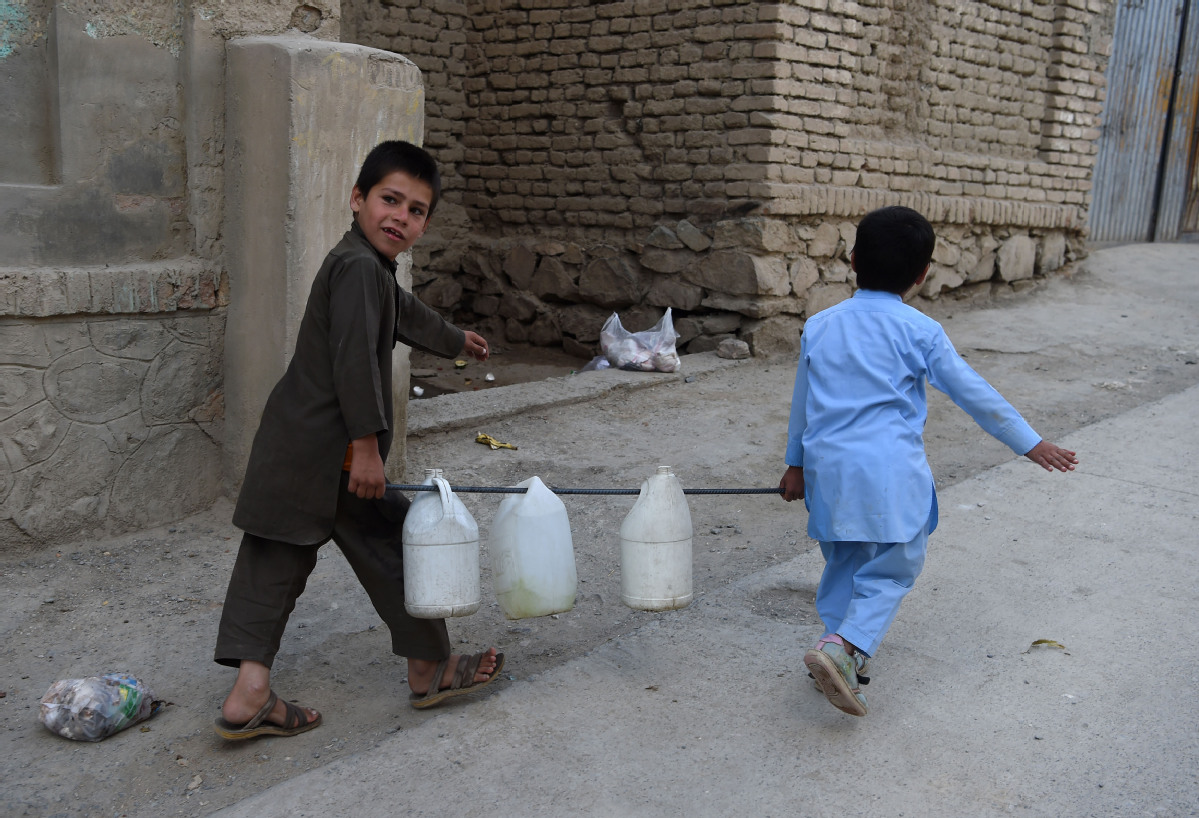Drought leaves Kabul facing a water crisis
China Daily | Updated: 2019-01-14 09:50

KABUL - Standing in his garden in Kabul, Baz Mohammad Kochi oversees the drilling of a new well more than 100 meters deep after his first water reservoir dried up. He is not alone.
A shortage of rain and snow, a booming population and wasteful consumption have drained the Afghan capital's water basin and sparked a race to the bottom as households and businesses bore deeper and deeper wells in search of the precious resource.
"The water level has dropped so much that it is now necessary to reach other underground basins 100 meters, even 120 meters" deep, says well digger Mohammad Aman as his dilapidated machine pierces the ocher earth in Kochi's yard.
Every year 80 million cubic meters of water are extracted from Kabul's aquifers - nearly double the natural recharge rate through precipitation, according to utility Afghanistan Urban Water Supply and Sewerage Corporation.
As a result Kabul's water table has fallen at least 30 meters in recent years, says Asian Development Bank deputy country director Shanny Campbell.
Snow has fallen in the city this month but it is not nearly enough to solve the water shortage - in some areas the level has dropped 20 meters in the past year.
"The problem we have in Kabul is the massive increase in population, impact of climate change and overall less precipitation and snowfall," Campbell explains.
Only around 20 percent of Kabul is connected to the city's piped water system, leaving many residents to ensure their own supply by digging wells that are often shared by several neighbors.
Others buy water from private companies, or, like Mohammad Nazir, fill up jerrycans at mosques or more than 400 public taps scattered around the city.
Water is not only scarce in Kabul, but most of it is undrinkable, according to the National Environmental Protection Agency.
Around 70 percent of the city's groundwater is contaminated by waste and chemicals from leaky household septic tanks and industrial plants that can cause diarrhea or other illnesses if the water is not boiled or purified properly.
Efforts to increase connections to the municipal piped water network and improve sanitation systems are under way.
But progress is slow as authorities struggle to keep up with demand in one of the fastest growing cities in the world.
Kabul's population has more than doubled to around 5 million in the past 30 years, boosted by the arrival of those fleeing war and poverty.
It is expected to reach 8 million by 2050, according to a report published in the Washington-based SAIS Review of International Affairs in 2017.
Improving living standards for many households also means more people are showering and washing cars than ever before. No restrictions on water usage means much of it is wasted.
Agence France-presse
























